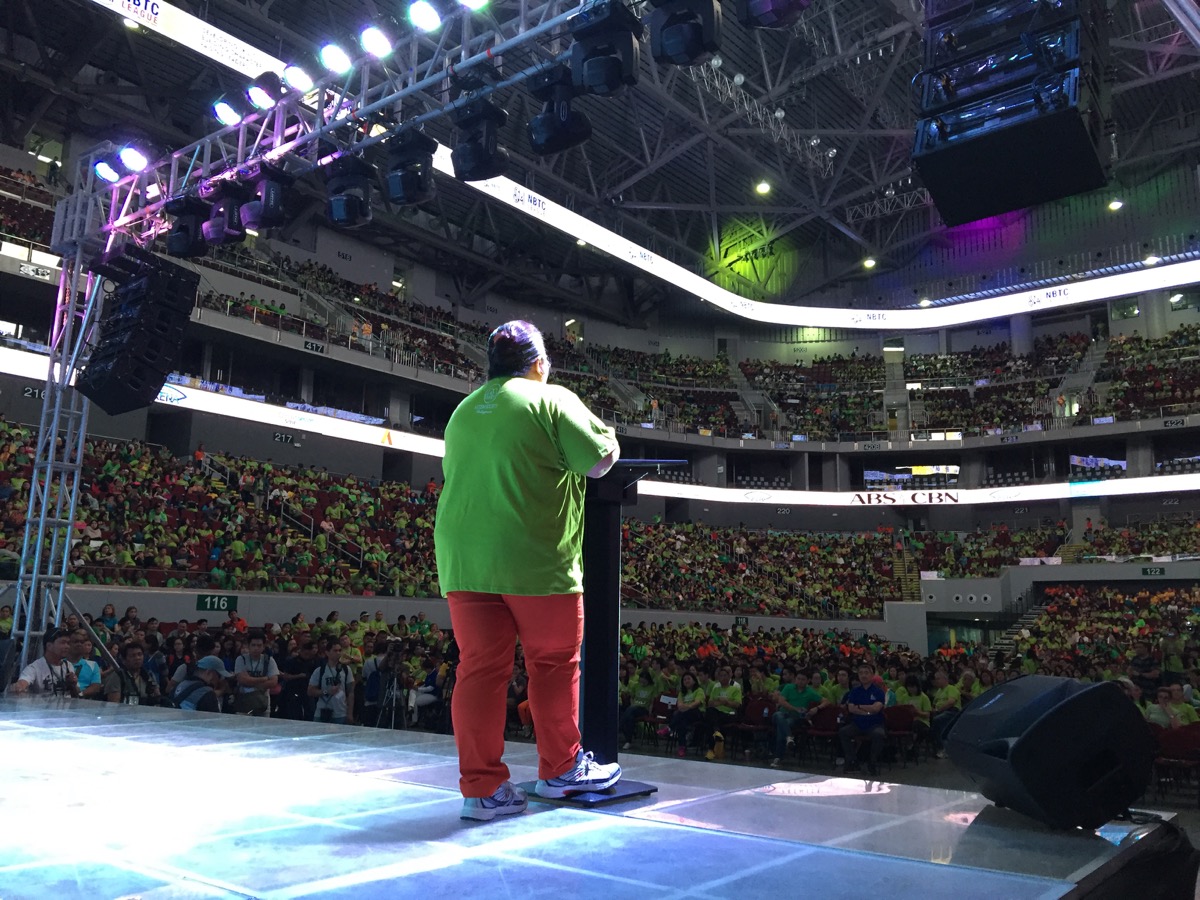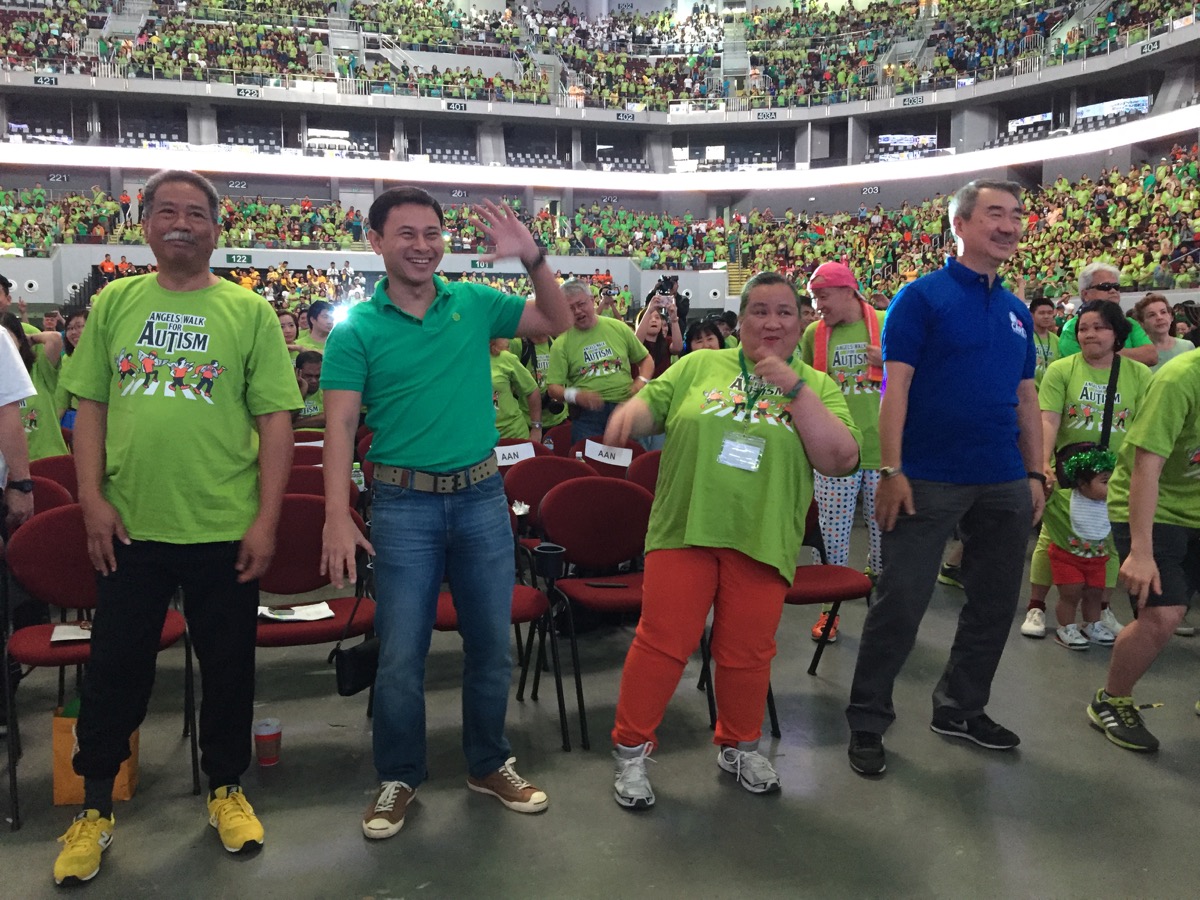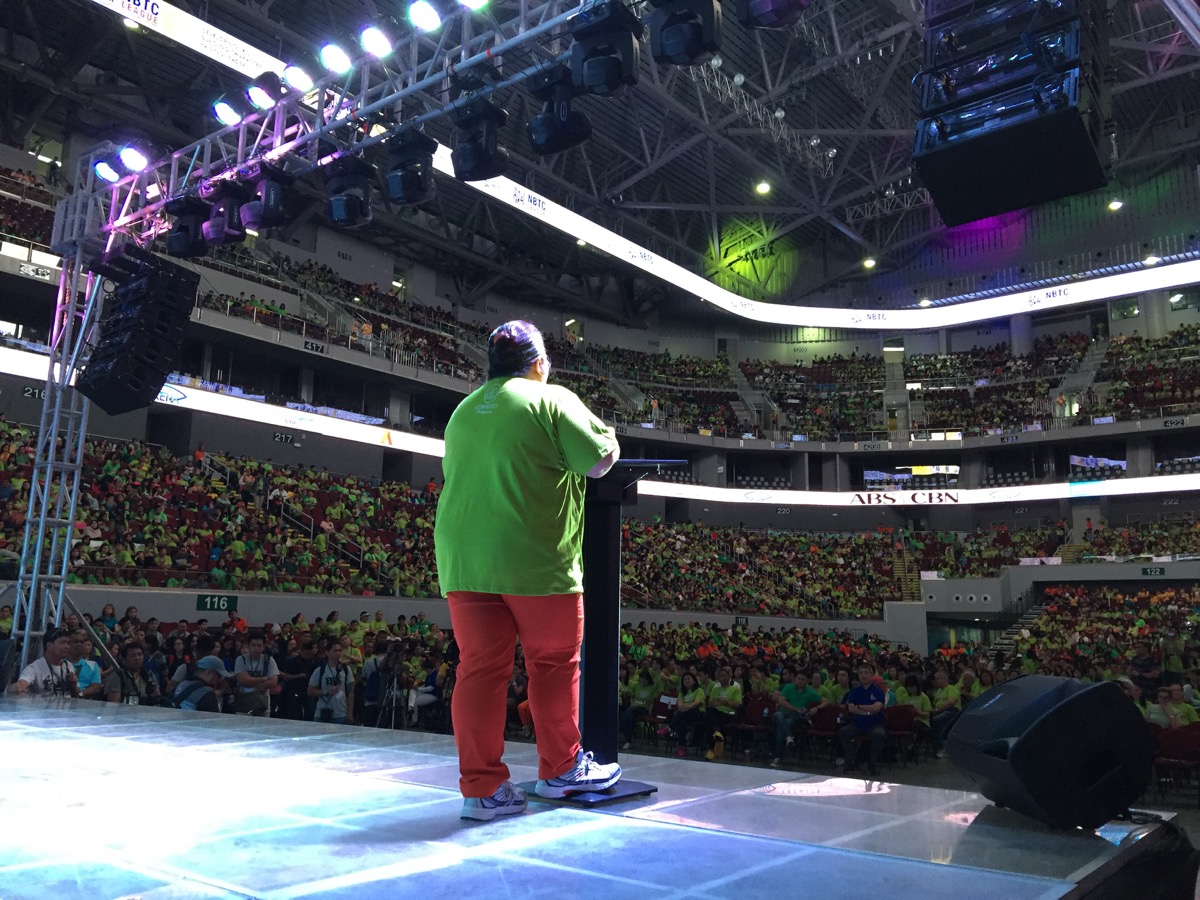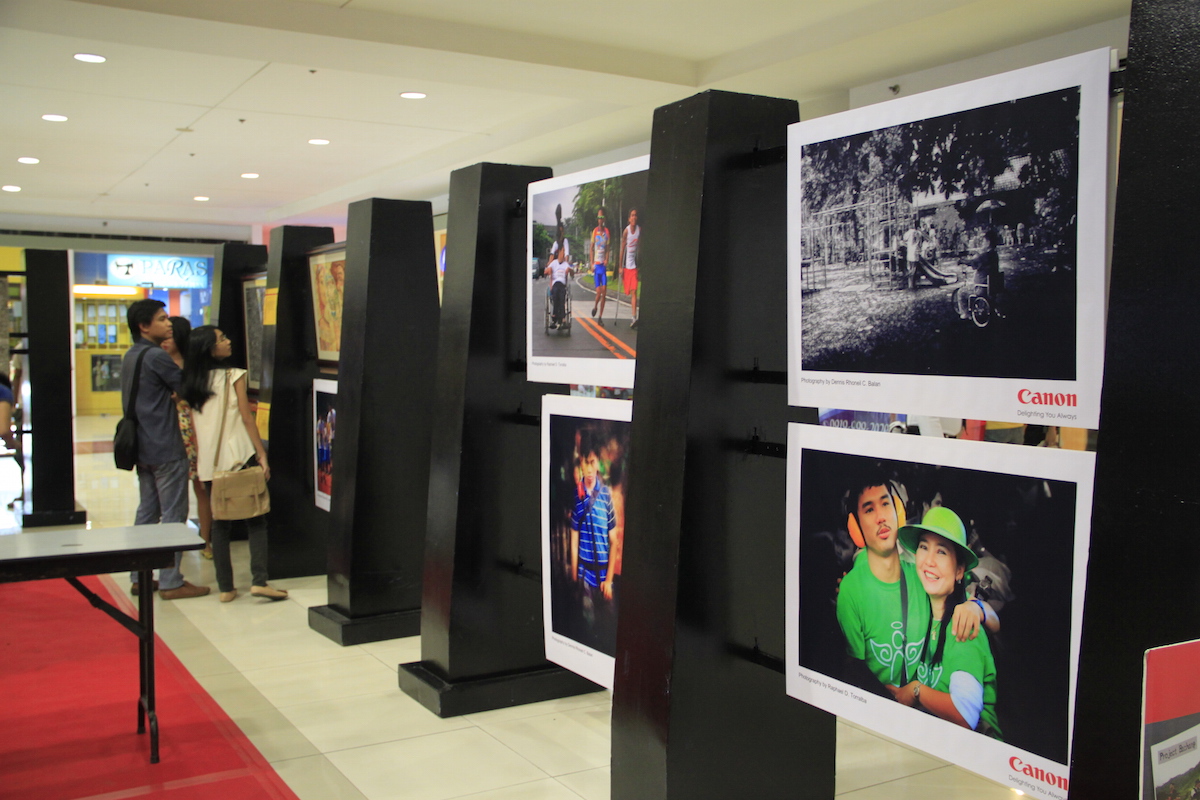By JAKE SORIANO
THE annual Angels Walk for Autism reached new heights Sunday.
A record crowd of 15,000 people, bigger than last year’s number, attended the event at the SM Mall of Asia Arena, and among them were around a hundred guests from the Association of Southeast Asian Nations (ASEAN) region and Japan.

“We have now crossed the borders of the Philippines,” beamed Mona Magno-Veluz, national president of Autism Society of the Philippines (ASP), the organization behind Angels Walk.
What began in 2007 as a small gathering to shine the light on autism is now a being lauded as a model for the rest of ASEAN.
“The advocacy for autism awareness and inclusion is truly commendable and really worth emulating in ASEAN,” said A.K.P Mochtan, Deputy Secretary General of ASEAN for Community and Corporate Affairs.
The Angels Walk was held less a month after the formal launch of the ASEAN community on the last day of 2015. ASEAN is composed of Brunei, Cambodia, Laos, Indonesia, Malaysia, Myanmar, the Philippines, Singapore, Thailand and Vietnam.
Mochtan has lauded it “the epitome of the ASEAN spirit” in line with the regional aims of belonging, narrowing development gaps, and inclusive development.
“I am indeed very much impressed. I am overwhelmed,” he said.
Akiie Ninomiya, executive director of the Asia-Pacific Development Center on Disability and father of a child with autism, called the event a “remarkable turning point” on collective autism advocacy in the region.
“ASEAN just started its integration formally, and opportunities must be available for each country and citizens, including persons with autism and their family members,” Ninomiya said.
“It is recognized that there is still a lack of laws, policies, programs and services to respond to the needs of persons with autism in the ASEAN region,” he said.
He called on members of the ASEAN Autism Network (AAN), of which ASP is part, to “go beyond its country boundaries, and work collectively within the ASEAN community.”
ASP chair emeritus Erlinda “Dang” Koe is set to take over as chair of the AAN, from Malai Abdullah of Brunei, who was also present in the Angels Walk.
In her speech, ASP national president Magno-Veluz reiterated the call she made last year for an “autism-OK” Philippines, and ASEAN, where the needs of persons with autism are adequately accommodated. (See Thousands don ‘angel wings’ for autism cause)

About one percent of the total global population has been identified with autism spectrum disorder.
This translates to some six million in ASEAN out of the more than 620 million people live in the region.
“Our advocacy is not only for the Philippines, but for the rest of ASEAN,” Magno-Veluz said.
“We are so happy that we have this community and we are able to share best practices. With that culture of sharing, we are able to learn from each other,” she said.
Recent developments in Philippine government programs and laws give the sector hope, she said.
“We’ve actually started having the conversations with PhilHealth (Philippine Health Insurance Corporation). They are now developing autism packages,” she said.
She also mentioned the exemption from the value-added tax (VAT) of persons with disabilities, which passed the bicameral committee of Congress last December, but is yet to be signed by president Benigno Aquino III. (See Bicam approves VAT exemption for PWDs)
She said one of the first things the ASP will do after the Angels Walk is to start actively calling for the signing of the bill into law.
“Trabaho pa po [More work needs to be done] on the side of our stakeholders,” she said.
Senator Sonny Angara, one of the authors of the VAT exemption for PWDs bill, who also attended the Angels Walk, noted that family members of PWDs would also benefit.
“We have also included in the law relatives taking care of PWDs,” Angara said in Filipino. “They would receive help from the government through a deduction in their income tax.”
The bill, in addition to exemption from VAT for PWDs, also allows relatives taking care of them to claim a P25,000 deduction in their annual income tax.
Another law that would benefit PWDs, said Angara, is Republic Act 10699.
Signed last year, it would raise the incentives granted to national athletes, coaches and trainers who excel in international competitions.
“In this new law, athletes with disabilities have been included,” he said.
Special Olympics gold medalist Raymond Macasaet was honored during the event with the ASP Autism Angels Achievement Awards.
Angara, Magno-Veluz and Koe presented the award to Macasaet, and to fellow achievers Victor Francesco Cham, a visual artist; and singer Thara Marie Santiago.


